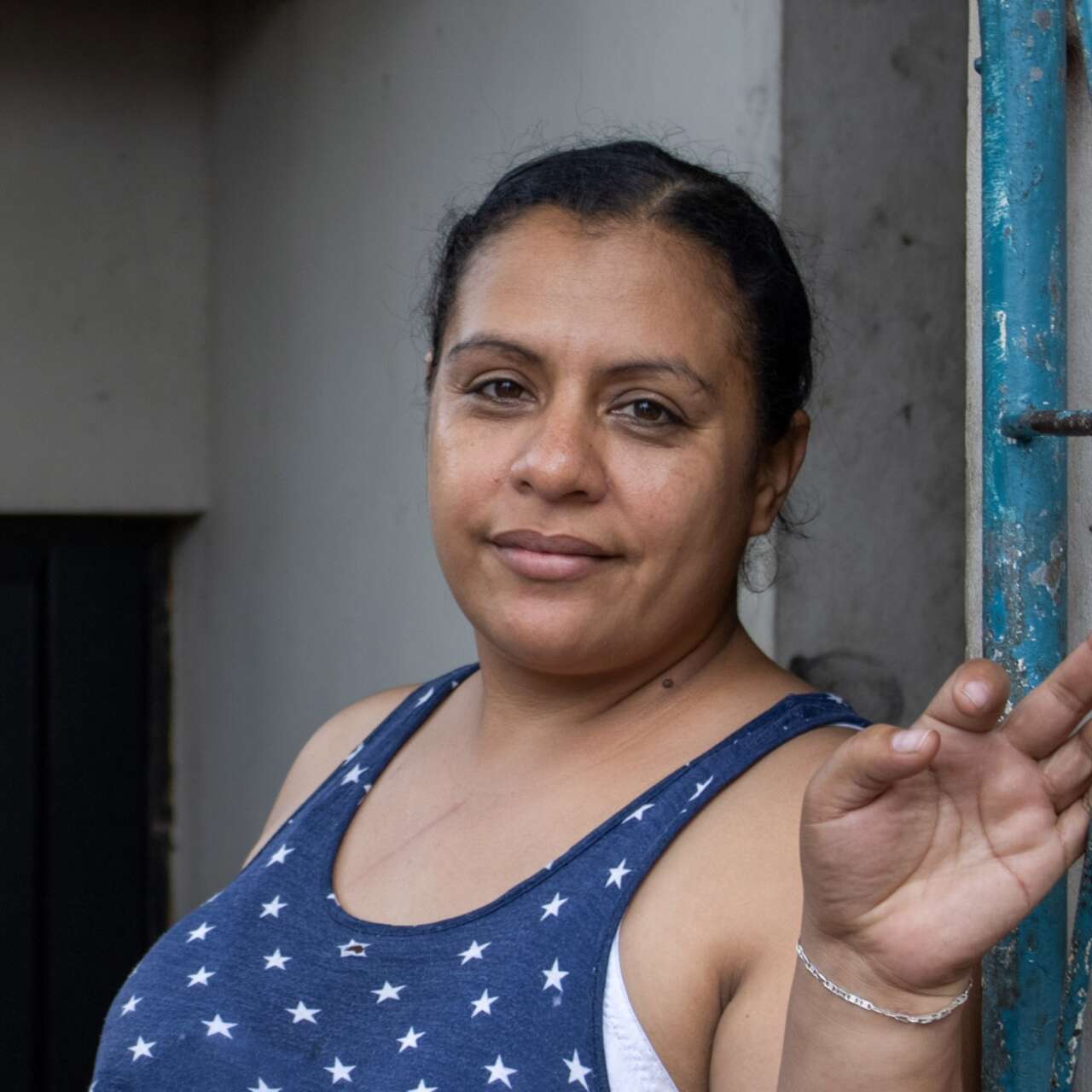Country facts
- Population: 9.7 million
- People in Need of Humanitarian Assistance : 3.2 million
- People internally displaced by crisis: 247,000 in 2022
- Rank in Human Development Index: 137 of 191
IRC response
- Refugee Response to civil wars in Central America: 1984 to 1987
- Humanitarian Crisis Response: 2019 to date
Honduras undergoes converging factors such as food insecurity, climate shocks, and chronic violence that have left 3.2 million people in urgent need of aid. The IRC is supporting individuals and families at high risk of displacement with access to critical information and services, cash relief, case management for gender-based violence survivors, and creation of safe spaces.
Honduras has been marked by violence akin to war zones. Criminal gangs and drug traffickers control parts of the country. Honduras has not yet recovered from the two hurricanes, Eta and Iota, that hit in 2021, and is currently facing serious drought and food insecurity. By late 2021, one in three Hondurans were experiencing crisis (IPC 3) or worse levels of food insecurity. The economy is still suffering from the crisis caused by the COVID-19 pandemic. Since 2020, the number of people in need of humanitarian aid has risen, reaching 3.2 million to date.
People in Honduras face a multidimensional crisis exacerbated by chronic violence, food insecurity and climate shocks. Homicide rates are rising again in 2023, and the country is considered one of the most dangerous in Latin America. Rates of gender-based violence are among the highest in the region, with the country seeing a plague of femicides: a woman is murdered every 28 hours. Women, children and the LGBTQ+ community are most at risk while the resources to support survivors of violence remain insufficient. In addition, gang recruitment of minors is also contributing to an increase in the number of families and unaccompanied children leaving Honduras.
Another factor that has ramifications in the humanitarian crisis that Hondurans face is climate change. After category 5 hurricanes Eta and Iota hit Honduras in November 2020, and Tropical Storm Julia in September 2022, subsistence farms were destroyed, killing livestock and reducing agricultural production. Other climate-induced shocks affected the country, including prolonged droughts.
Today, the IRC serves individuals and families in need of aid and at increased risk of displacement. We support internally displaced people; returnees; and women, girls, youth, and members of the LGBTQ+ community who are survivors of gender-based violence.
Our programmes in Honduras cover:
- Protection and empowerment. The IRC supports gender-based violence survivors through case management and the creation of specialty safe spaces, which enable people to be referred to vital services, such as economic support, legal orientation, healthcare, education, childcare and more. The response also focuses on child protection by offering caregivers in violent contexts support and effective services that raise awareness, as well as case management for children who experience family separation, violence, exploitation, abuse, and neglect.
- Awareness raising and information. Through CuéntaNos, the IRC promotes access to reliable information and mapping of trustworthy service providers. CuéntaNos - part of the global Signpost project and powered by Zendesk - is an online information platform created by IRC that leverages social media to offer access to information, a map of verified services, and direct referrals via a helpline for persons in crisis.
- Economic recovery and development. Through multipurpose cash assistance, the IRC supports families in need to help them cover their most immediate needs, such as food and shelter.
- Education. The IRC implements Research in Education for Transformative Opportunities (RETO), a USAID-funded project, is identifying and transforming violence prevention evidence into actionable and scalable methodologies for key education stakeholders.
Significant additional investment by the international cooperation is necessary to address the root drivers of displacement in the Northern Central America countries - including Honduras - but also to respond to the immediate needs that people experience in the middle of the humanitarian crisis.
We will continue to respond across the arc of the crisis and support uprooted people by expanding and scaling-up programmes to deliver services and humanitarian assistance to those on the move, refugees, asylum-seekers, and returnees.

